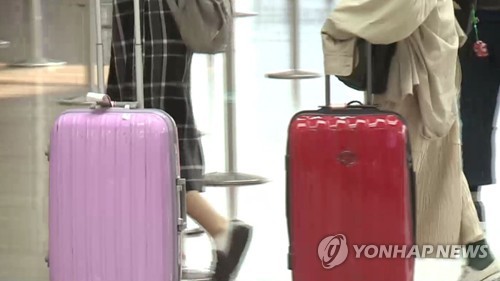- California Assembly OKs highest minimum wage in nation
- S. Korea unveils first graphic cigarette warnings
- US joins with South Korea, Japan in bid to deter North Korea
- LPGA golfer Chun In-gee finally back in action
- S. Korea won’t be top seed in final World Cup qualification round
- US men’s soccer misses 2nd straight Olympics
- US back on track in qualifying with 4-0 win over Guatemala
- High-intensity workout injuries spawn cottage industry
- CDC expands range of Zika mosquitoes into parts of Northeast
- Who knew? ‘The Walking Dead’ is helping families connect
Think tank recommends looking at Japan in promoting tourism industry
SEOUL, Oct. 26 (Yonhap) — An economic think on Friday released recommendations on what the government can do to improve the country’s tourism industry, citing Japan as an example to follow.
The recommendations by the Korea Economic Research Institute (KERI), relayed to the tourism ministry, enumerate 10 tasks in five sectors — the visa system, transportation, accommodation, a control tower for tourism and tourism content — to facilitate improvements.
More specifically, the government should simplify visa procedures by issuing e-visas for visitors from Southeast Asia, whose numbers have grown substantially, KERI said. For Chinese tourists, the government should allow multiple visas for people from more regions, it said.
Chinese tourists arriving on cruise ships can stay here only up to three days for group travel, compared to a week in Japan, KERI pointed out. It recommended matching Japan’s weeklong stay and giving people a choice between individual and group tours. There should also be better transportation infrastructure — for example, offering a unified ticket that tourists can use for buses, subways, trains, ships and planes.
Other recommendations included softening the current restrictions on the accommodation business to allow the use of empty homes, setting up more global theme parks, removing private consumption tax for golf course users and immediate tax refunds for duty free shop purchases.
KERI also recommended establishing a government agency exclusively for mapping tourism policies.
The institute said its suggestions were prompted by comparisons with Japan, which has seen a bigger increase in the volume of foreign tourists than South Korea.
KERI’s data showed that while the increase for South Korea was 5.4 percent for the years 2011-2017, it was 29 percent for Japan over the same period. South Korea’s tourism trade ended last year with a US$13.76 billion deficit.
The institute attributed Japan’s better performance to its focused policy on developing the tourism industry to boost the local economy and efforts by both the central and local governments to develop and advertise regional festivals and events, utilizing special characteristics such as nature, tradition, architecture and food.
Consistently removing visa requirements for Chinese visitors from 2011 and setting up exclusive terminals for them also helped the Japanese tourism industry, KERI said.









![일본 사도광산 [서경덕 교수 제공. 재판매 및 DB 금지]](http://www.koreatimesus.com/wp-content/uploads/2024/07/PYH2024072610800050400_P4-copy-120x134.jpg)


